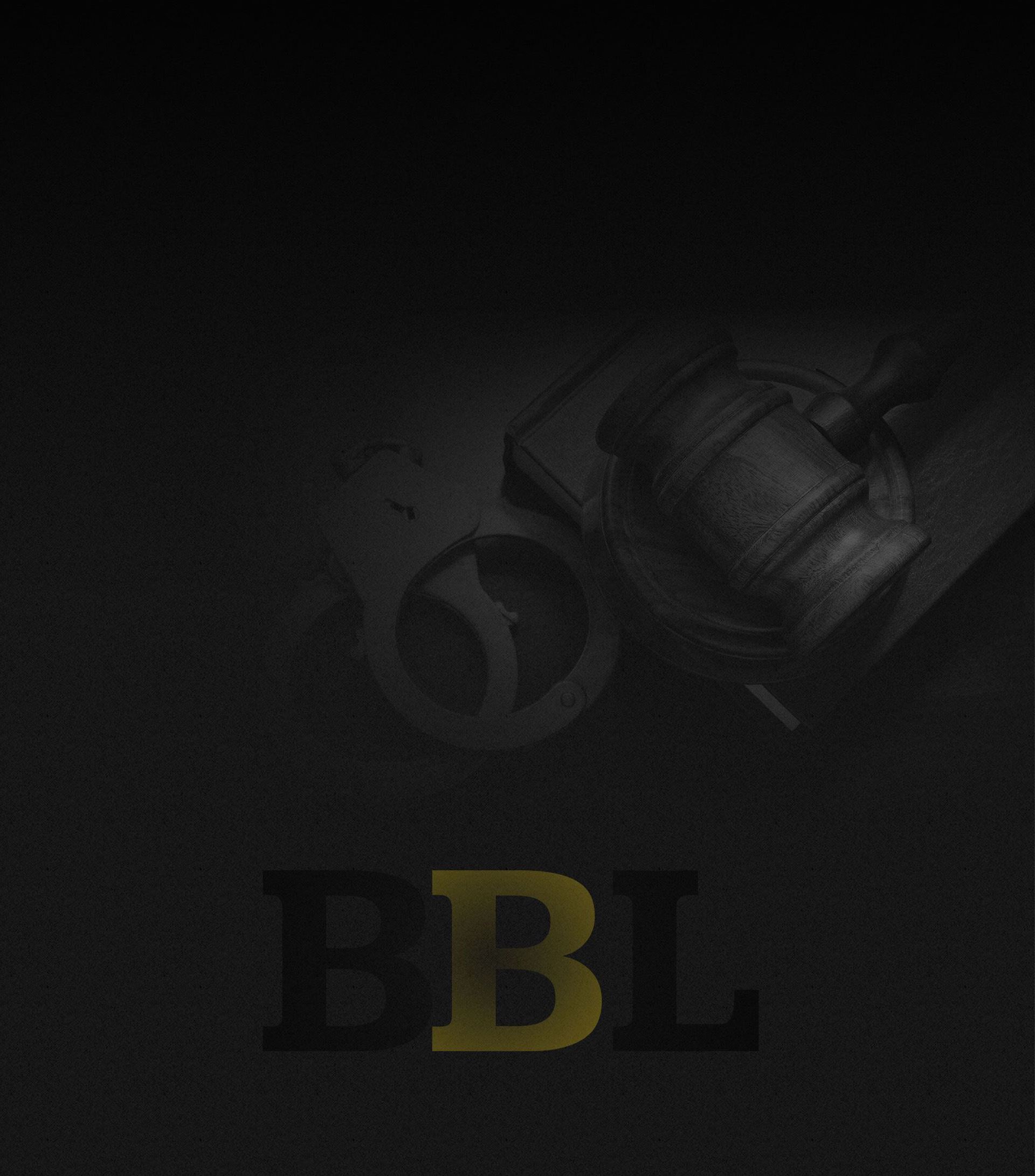
Boston's Go-To Criminal Defense Law Firm
Boston Rape Defense Lawyer
Understanding Rape Defense in Boston, MA
Rape allegations in Massachusetts constitute some of the most serious accusations and bring some of the harshest charges. When the stakes are as high as they are after you have been accused of any form of rape, you cannot afford to put your case in the hands of just any attorney. Attorney Brad Bailey has the experience and know-how to provide you with the aggressive legal protection that your case will require.
If you are convicted of rape, you may face charges as heavy as:
- Up to 20 years in prison – Convictions carry serious incarceration penalties.
- Thousands of dollars in fines – Financial penalties can be substantial.
- Required sex offender registration – Being registered as a sex offender can have long-lasting effects. Learn more about registration requirements.
The fact is that a single rape accusation and conviction can damage your finances, freedom, and reputation for the rest of your life. With so much on the line, it is time to contact Brad Bailey Law at (617) 500-0252.
What Is Considered Rape in Massachusetts?
In Massachusetts, rape is defined by specific elements that the prosecution must prove during trial. These elements ensure that charges are brought against individuals based on clear legal standards. The prosecution in a rape case will have to prove that three things happened:
- Sexual intercourse or “unnatural sexual intercourse” occurred between two people.
- One of the two people did not consent to the sexual acts.
- Force or threat of violence was used before or during the sexual acts.
“Unnatural sexual intercourse” simply refers to sexual acts of any kind that do not directly involve both people’s genitalia. Consent can either be given directly through words or indirectly through inviting actions, but it can never be given if someone lacks the capacity to give consent; for example, someone who is asleep, rendered unconscious, mentally disabled, or heavily intoxicated or drugged cannot give consent.
Force or threat of violence is a fairly general term. The vagueness of its legal definition opens the door for the prosecution to try to prove force in incidents where there was none. Physically harming someone through sexual assault and battery can be used as a clear act of force, but the mere presence of fear in the alleged victim can be seen as a threat of violence, regardless of what the accuser said or did. There does not have to be any threatening words or any resistance from the alleged victim for the state to consider the action rape.
Legal Process in Boston Rape Defense Cases
In Boston, the legal process for defending against rape allegations begins immediately upon arrest or charge. It is crucial for the accused to understand this process to ensure they take the appropriate steps to defend themselves effectively. First, an arraignment occurs, where charges are formally presented, and the accused can enter a plea. Often, bail is discussed during this stage, determining whether the accused can be released before the trial.
The legal process for rape defense in Boston typically involves several key stages:
- Arraignment and bail determination – Charges are read, a plea is entered, and the court decides on bail or holding until trial.
- Discovery phase – Both the rape defense attorney and prosecution review evidence, exchange information, and prepare their strategies.
- Pre-trial hearings – Motions are filed and ruled on, often to exclude evidence or address procedural issues.
- Trial at Suffolk County Superior Court – The case is presented before a judge or jury, and local court knowledge in Boston can be a significant advantage.
- Sentencing or post-trial motions – If convicted, sentencing takes place according to Massachusetts law; defense counsel can also make motions to appeal or reduce the sentence.
Following the arraignment, the discovery phase provides both the defense and prosecution an opportunity to examine evidence and prepare their cases. Having a knowledgeable attorney like Brad Bailey, with his Harvard education and prosecutorial background, significantly aids this process by scrutinizing all evidence for inconsistencies and rights violations. Trials are often held at the Suffolk County Superior Court, where local knowledge of court norms and personnel can be advantageous. Throughout this ordeal, maintaining clear communication with legal counsel ensures that defendants are adequately prepared for each stage, from pre-trial hearings to potential jury verdicts.
Contact Brad Bailey Law today! Free consultation.
Aggravated & Forcible Rape Charges
If a significant amount of force or resistance occurred during the alleged sex crime, it may be considered aggravated or forcible rape. The same may be said if bodily injury occurs, if a deadly weapon, such as a knife or firearm, is used to intimidate the accuser, or if multiple people sexually assault one victim at the same time. Aggravated and forcible rape charges carry penalties even more severe than other rape convictions. You could be imprisoned for life depending on the circumstances of the accusation.
Aggravated and forcible rape charges in Boston may involve several critical aggravating factors:
- Use of deadly weapons – Involving a firearm, knife, or other weapon significantly increases the severity of penalties.
- Serious bodily injury – Victims who suffer physical injury may lead to harsher sentencing under Massachusetts law.
- Group assaults – If several individuals are accused as part of the same incident, the prosecution may pursue additional charges for each defendant.
- Threats or intimidation – Cases involving intimidation or credible threats against victims often result in more aggressive prosecution at Boston-area courts.
Understanding the nuances of aggravated and forcible rape charges is essential for effectively mounting a defense in these severe cases. Massachusetts courts take an especially hard stance on such offenses due to their violent nature and the significant trauma inflicted on victims. Consequently, defendants may face harsher scrutiny and longer sentences. The law also mandates stringent sentencing guidelines for those found guilty, with the potential for life imprisonment highlighting the gravity of the offense. Defending against aggravated rape charges therefore requires a detailed examination of the evidence and a robust legal strategy to challenge the prosecution's case.
What Is Assault with Intent to Rape?
In order to prove a defendant guilty of assault with intent to rape, the Commonwealth must convince a jury, beyond a reasonable doubt, of the following elements:
- The defendant assaulted and intended to physically harm the victim.
- The defendant intended to rape the victim.
Even if the act of rape never actually occurred, a defendant convicted of assault with intent to rape will face serious penalties.
Assault with intent to rape is a grave charge in Massachusetts, carrying significant legal penalties, including imprisonment and a permanent criminal record. It's important for the accused to understand the intricacies of this charge. The prosecution must prove the intent to commit the act, which can include examining actions, words, and the context leading to the alleged offense. Defending against such charges involves scrutinizing every aspect of the alleged incident, challenging inconsistencies in testimonies, and providing alternative explanations for the accused's actions. It's crucial for defendants to act quickly and engage with experienced legal counsel to protect their rights and prepare an effective defense strategy.
Legal Defenses Against Rape Charges
In Massachusetts, legal defenses against rape charges depend on the circumstances of the case and the specific statute under which the defendant is charged. Some common defenses include:
- Consent – Massachusetts law defines rape as sexual intercourse accomplished through force or threat of force and against the will of the alleged victim. If the defendant can show that the act was consensual, this may serve as a defense. However, consent is not a valid defense in cases involving statutory rape (when the victim is under the legal age of consent, which is 16 in Massachusetts).
- False Allegations – The defense may argue that the accuser has made a false claim due to personal motives, such as revenge, a custody battle, or embarrassment. This defense often relies on inconsistencies in the accuser’s statements, witness testimony, or electronic communications.
- Mistaken Identity – If the defendant was wrongly identified as the perpetrator, they may use alibi evidence, DNA analysis, surveillance footage, or other forensic evidence to prove they were not involved.
- Lack of Evidence – The prosecution must prove every element of the charge beyond a reasonable doubt. If there is insufficient evidence, unreliable witness testimony, or forensic inconsistencies, the defense can argue that the case does not meet the legal standard for conviction.
- Incapacity or Mental Illness – While rare, a defendant may argue they lacked criminal intent due to severe mental illness or incapacity. Massachusetts follows the McHoul standard for insanity, meaning the defense must prove that the defendant lacked the substantial capacity to appreciate the wrongfulness of their actions.
- Intoxication – Voluntary intoxication is generally not a defense to rape charges in Massachusetts. However, if the defendant was involuntarily intoxicated (e.g., drugged without their knowledge) and unable to form the necessary criminal intent, this may serve as a defense.
- Statutory Rape Exceptions – Massachusetts law allows for certain limited defenses in statutory rape cases. The "Romeo and Juliet" provision provides a possible defense if the accused is close in age to the minor (e.g., under 19 and within a three-year age difference of the complainant).
Bringing in Expert Witnesses
Expert witnesses can play a vital role in defending against rape charges in Boston. These professionals, who might include forensic analysts, psychologists, or medical experts, provide specialized insights that could challenge the prosecution's evidence or support the defense's case. For instance, a forensic expert could analyze DNA evidence to refute claims of physical contact, while a psychologist might explain potential motives for false allegations or discuss the psychological state of the accused.
The strategic use of expert testimony can be a decisive factor in the outcome of a trial. Attorney Brad Bailey’s extensive network from his years as a state and federal prosecutor enables him to access a robust roster of experts. By leveraging these experts effectively, he can bolster the defense with authoritative analyses, making it harder for the prosecution to convince a jury beyond a reasonable doubt. This strategic advantage can significantly impact the trial's direction, highlighting discrepancies or undermining unjust accusations.
Choose a Proven Attorney for Your Defense
Boston Criminal Defense Attorney Brad Bailey has been selected as a Massachusetts Super Lawyer® several times throughout his career, and has even earned an AV® Preeminent™ Rating from Martindale-Hubbell®, which is the highest rating a lawyer can receive from this prestigious organization. If you need to defend yourself from rape accusations in Massachusetts, you need the unwavering, trial-tested defense of Brad Bailey.
Understanding Collateral Consequences of Rape Accusations in Boston
Beyond the risk of incarceration or fines, facing rape charges in Boston can have serious collateral consequences that impact nearly every aspect of a person’s future. These consequences can come into play even before the case goes to trial, and may persist regardless of the verdict. Understanding these potential repercussions is critical for anyone accused of such an offense and for making informed decisions about their defense strategy.
For example, individuals awaiting trial may experience challenges such as job loss, suspension from educational institutions, or termination from professional licensing boards. Allegations of rape can also make securing housing extremely difficult, as many landlords and property managers in the Boston area are reluctant to rent to those facing criminal allegations of this nature. In addition, requirements set by agencies and the Massachusetts Sex Offender Registry Board can have long-term effects on daily life and community engagement even if the matter is ultimately resolved in court. Defending these accusations with the guidance of a rape attorney in Boston who understands how local laws and regulations intersect is crucial for proactively managing these collateral issues.
If you find yourself navigating collateral consequences, here are important considerations:
- Employment concerns – Employers may be notified or learn about pending criminal cases, leading to suspension or job loss during the legal process.
- Housing barriers – Boston’s tight rental market and local housing regulations can compound difficulties for anyone accused of sex crimes, even before a formal conviction.
- Reputational impact – Valuable community relationships and professional connections can be jeopardized by the existence of allegations, particularly as court records and local news coverage are often public.
Anyone facing rape charges should seek knowledge about these possible effects from reliable legal counsel and address collateral concerns early in the defense process. Working with a rape defense attorney in Boston who is familiar with the area and its legal environment can help preserve vital aspects of your life both during and after court proceedings. Massachusetts statutes and local court policies play a major role in how collateral consequences are applied, which further highlights the need for specific and knowledgeable legal guidance.
Frequently Asked Questions
How long do rape cases usually take to resolve in Boston?
The timeline for resolving rape cases in Boston can vary significantly based on several factors, including the complexity of the case, the court's schedule, and whether the defendant chooses to go to trial or accepts a plea bargain. Generally, simpler cases may resolve more quickly, while complex ones, especially those involving significant forensic evidence or multiple witnesses, might take longer. Pre-trial motions and negotiations can extend the timeframe, as both sides explore the strengths of their cases. In some instances, a case might resolve in a matter of months, but it can also extend over a year or more if it goes to trial.
At each stage, having an experienced attorney like Brad Bailey, who understands the nuances of Boston's court systems and procedures, can make a substantial difference. This thorough understanding allows for strategic decisions that could influence the speed and outcome of the case, ensuring that the client's rights are protected while aiming for the best possible resolution.
What rights does a defendant have during a rape trial in Massachusetts?
In Massachusetts, defendants in rape trials are afforded several vital rights designed to ensure a fair trial process. These rights include the right to be presumed innocent until proven guilty, the right to a speedy trial, the right to counsel, and the right to confront witnesses testifying against them. Additionally, defendants have the right to a jury trial, where a jury of peers decides the case's outcome based on the evidence presented.
Attorney Brad Bailey places a strong emphasis on these rights, actively ensuring that they are fully upheld throughout the legal process. His approach is strategic and deeply informed by his prosecutorial background, which allows him to anticipate potential challenges and address them proactively. By focusing on these rights, his practice fosters a defense deeply rooted in constitutional protections, advocating for the best interests of his clients at every stage of the proceedings.
What steps should you take if falsely accused of rape in Boston?
Being falsely accused of rape is a serious and distressing situation. It is crucial to take immediate, strategic steps to protect one's rights and future. First, refrain from making any statements to law enforcement or the accuser without a lawyer present, as anything said can be used against you. It is essential to contact an experienced defense attorney like Brad Bailey immediately to begin constructing a robust defense strategy.
Documenting any evidence that can support your innocence is vital, such as communications, alibi witnesses, or any context around the events in question. At the same time, avoid any contact with the accuser, as this could potentially complicate the legal situation further. Understanding the seriousness of the charge and quickly engaging a competent legal defense is critical. Attorney Brad Bailey's extensive experience in navigating the Massachusetts legal system provides an invaluable asset for anyone facing such devastating allegations.
Contact Brad Bailey Law today at (617) 500-0252 and you can schedule a free case evaluation with his law firm.

The Right Choice for Your Case
-
"We cannot recommend Brad Bailey more highly to anyone facing criminal charges in any court at any level."Anonymous
-
"Brad Bailey is one of the best attorneys I've had. He's easy to talk to and listens. Gives great advice and is ready to do work hard for a positive outcome."Krysten O'Donnell
-
"This is one smart and hard-working attorney. He is attentive and he was ready to fight any angle the prosecutors could come up with. His experience in the legal forum is significant and it shows."Canda Share
Free Consultation
See How Our Award-Winning Attorney Can Fight for YouOnly Hire an Attorney Who Gets Results
-
Murder 1, Jury Trial
Not Guilty
Not guilty verdict after jury trial for client charged with murder.
- Aggravated (Gang) Rape, Jury trial Not Guilty
- Aggravated Rape of Child, forcible Rape of Child, Indecent A & B (Jury Trial) Not Guilty
- Forcible Rape, Jury Trial Not Guilty
- Arson Occupied Dwelling, Bomb Incendiary Device Federal Jury Trial Not Guilty
-
Perjury, Obstructing Justice, Federal Jury Trial
Not Guilty
Not Guilty: Perjury & Obstruction – Federal Jury Trial Victory.
- Obstructing Official Proceeding, Destruction of Records (Public Official) Federal Jury Trial Not Guilty
- Forcible Rape of Child, Jury Trial Not Guilty
- Conspiracy to Commit International Money Laundering, Defraud the USA, and Health Care Fraud (Federal Jury Trial) Not Guilty Verdicts
- Murder 1 Motion for New Trial GRANTED (after hearing) Verdict Reversed
- Trafficking in Cocaine, Jury Trial Not Guilty
- Forcible Rape, REVERSED ON APPEAL Dismissed
- Racketeering (RICO), REVERSED ON APPEAL (1st Cir) Dismissed
- Aggravated Rape of Child, Rape of Child, Disseminating Harmful Material, Jury Trial Not Guilty Verdicts
- Murder 1 [Adjutant Defense] Manslaughter Result
- Murder 1 (Jury Trial) Hung Jury
- Conflict of interest/ False Pretense Fraud (Jury Trial) Hung Jury / Dismissed
- Aggravated Felonious Sexal Assault (NH), Motion for new trial GRANTED (after hearing) INDICTMENTS DISMISSED
- Aggravated Rape of Child, rape of Child, indecent A & B ( Teacher), Jury Trial MISTRIAL; HUNG JURY
-
Forcible Rape, (Jury Trial)
Not Guilty
Not guilty verdict after jury trial for client charged with rape.
- Murder 1 [Insanity Defense] Charges Reduced
- Aggravated Rape of Child (age-gap) And Child Rape, Jury Trial Hung Jury/Mistrial Declared
- Possession of Child Pornography [Felony] MOTION TO SUPPRESS GRANTED - Bristol Co. Charges and Case dismissed
- Aggravated Rape of Child (2 counts), Rape of Child Not Guilty Verdicts
- Aggravated Rape of Child, Rape of Child, Indecent A & B INDICTMENTS DISMISSED ( PRETRIAL)
-
Aggravated Rape of Child, Forcible Rape of Child (Jury Trial)
Hung Jury / Indictments Dismissed
Indictment Dismissed
- Aggravated Rape of Child, rape of Child, indecent A & B ( Teacher), Jury Trial MISTRIAL; 2d HUNG JURY
- Possession Child Pornography (Felony) Motion to Suppress- Essex Co. GRANTED (after hearing)
-
Rape (Dublin Firefighter)
HUNG JURY / MISTRIAL
Commonwealth v. Terence Crosbie
- Falsification of Records, Fed Jurisdiction, Fed Jury Trial, NOT GUILTY VERDICT
- Armed Carjacking INDICTMENTS DISMISSED
- Medicaid false Claims INDICTMENTS DISMISSED
- Worcester County Child Rape Trial Not Guilty on All Counts
-
Impressive Results Across the Nation
-
Team Approach to Handling Your Case
-
Experience as a Former Prosecutor
-
One of The Nation's Top Firms














[1].2210101253391.png)
[1].2210101243217.png)














.2303241403550.png)


